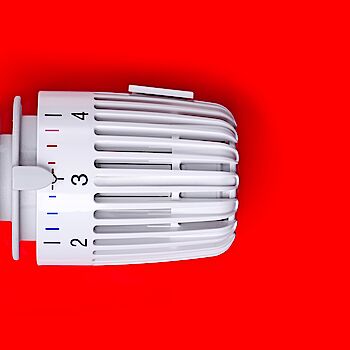In a joint study by researchers from Aachen and Berlin, including ECDF Professor Rita Streblow (TU Berlin), the scientists evaluate easy-to-implement and cost-effective energy efficiency measures. The paper formulates concrete recommendations on how private households can significantly reduce space heating and domestic hot water consumption, if possible through easy-to-implement technical measures and behavioral adjustments. At the same time, this is associated with comparatively low restrictions on comfort.
Space heating and domestic hot water account for around 70 percent of the energy consumed by private households. Almost every second German home is heated with natural gas. Here, consumption can be significantly reduced without any economic disadvantages. Some of the measures described can be implemented without investment, while others require low or moderate expenditure on technical equipment or insulating materials. The proposals insist exclusively on measures without very high investment requirements, since it cannot be assumed that they will be implemented in the short term, and on measures that can be implemented largely without craftsman expertise. Construction activities that require craftsman expertise were highlighted as such. "Today, the typical temperature in living spaces is 21°C, ensuring comfortable warmth even when wearing lighter clothing. Adjusting clothing is a simple lever we can use: By wearing warmer clothing, it is still comfortable at lower temperatures such as 19 °C, but at the same time energy is saved," explains Prof. Dr. Rita Streblow
The results of the researchers' calculations emphatically document the potential reductions in consumption. With little expenditure, this is achievable for up to 49 percent of the space heating demand. In the case of energy demand for domestic hot water, savings of as much as 69 to 81 percent can be achieved if the occupants have shown little restraint in their use of domestic hot water to date. The savings are lower where energy has already been used very sparingly in the past.
In addition, short questionnaires were distributed among the participants at the 11th Energiewendebauen project management meeting to identify short-term measures for increasing energy efficiency in the operation of buildings and neighborhoods. The results were summarized by nine experts, supplemented by explanations and further procedures, and published in a white paper by Prof. Dr. Rita Streblow, Prof. Dr. Dirk Müller. Altogether 110 suggestions could be arranged thus, which can make a contribution for the lowering of the energy and thus the gas consumption in buildings and quarters.
Click //here for the study and //here for the white paper.

